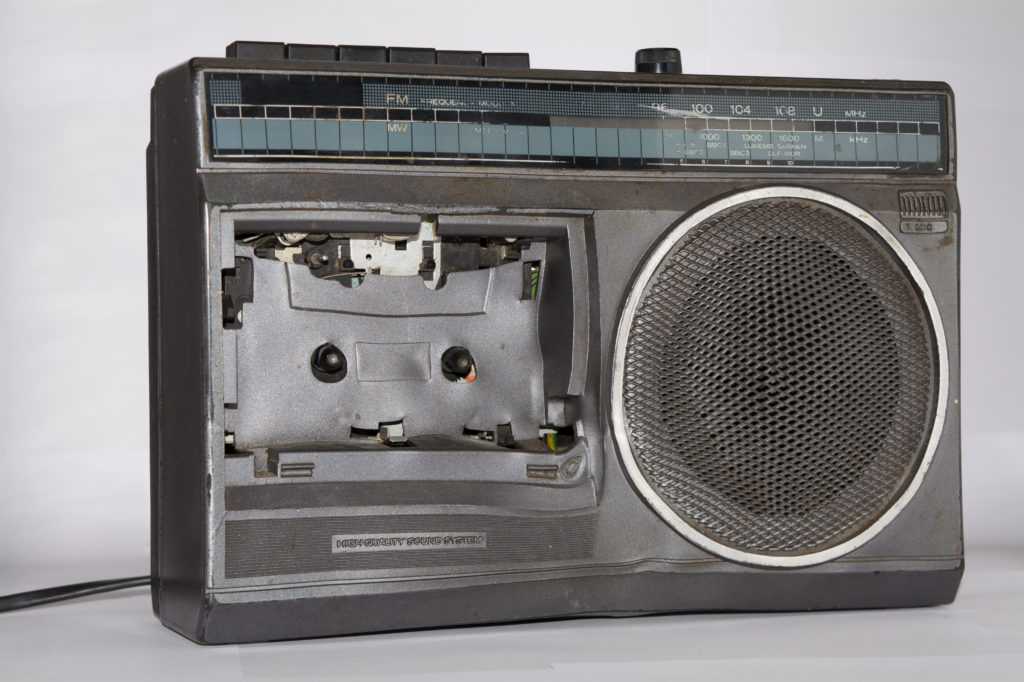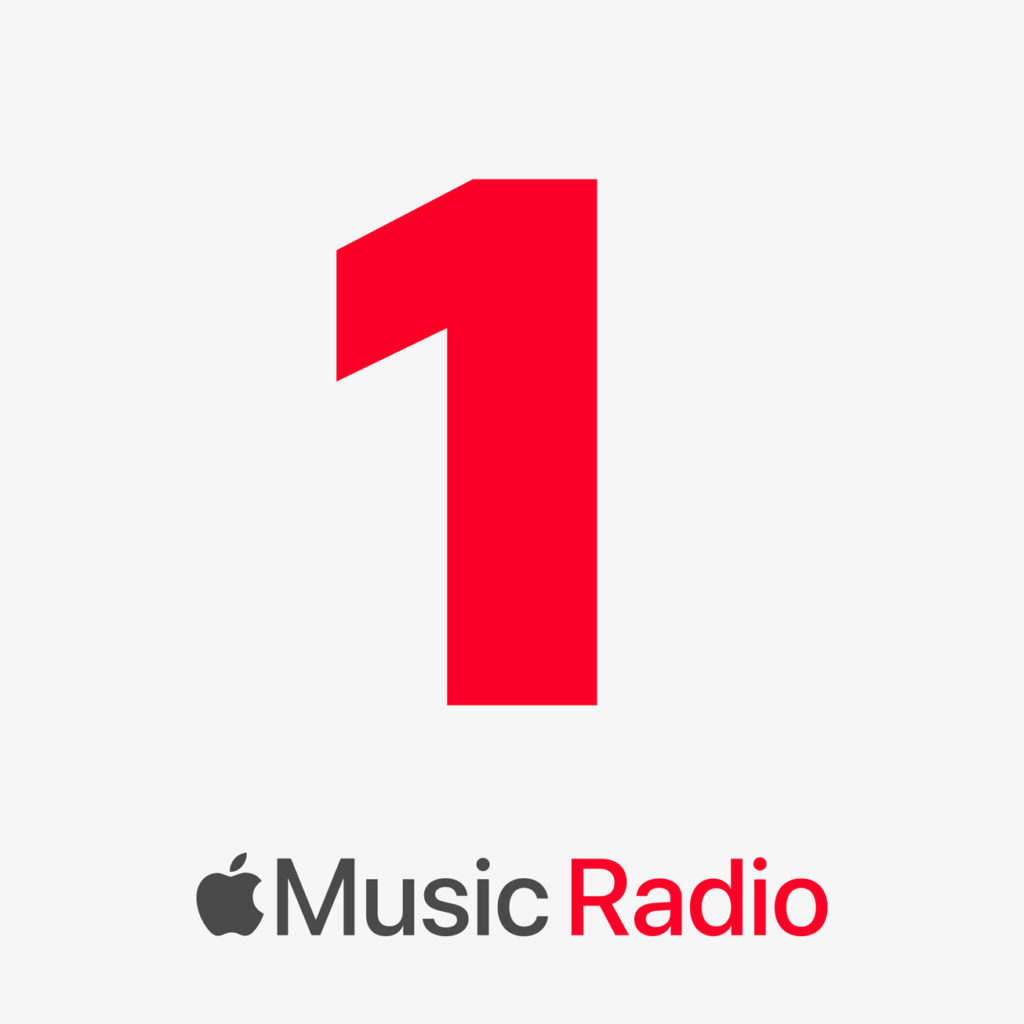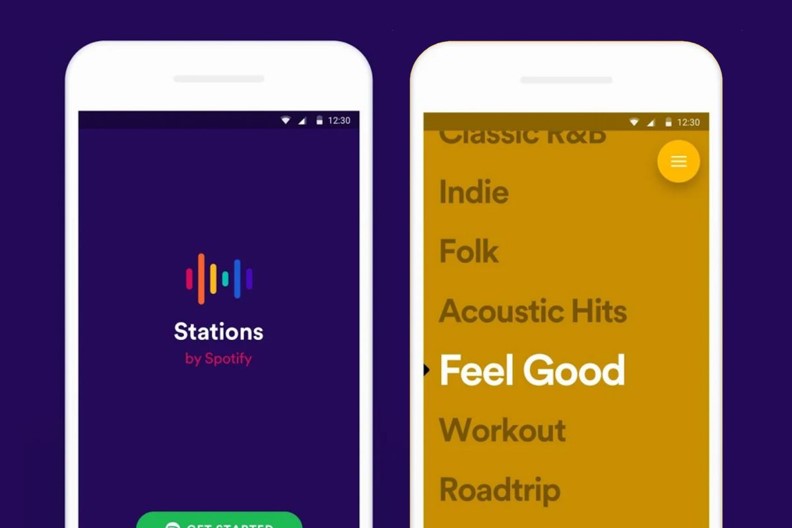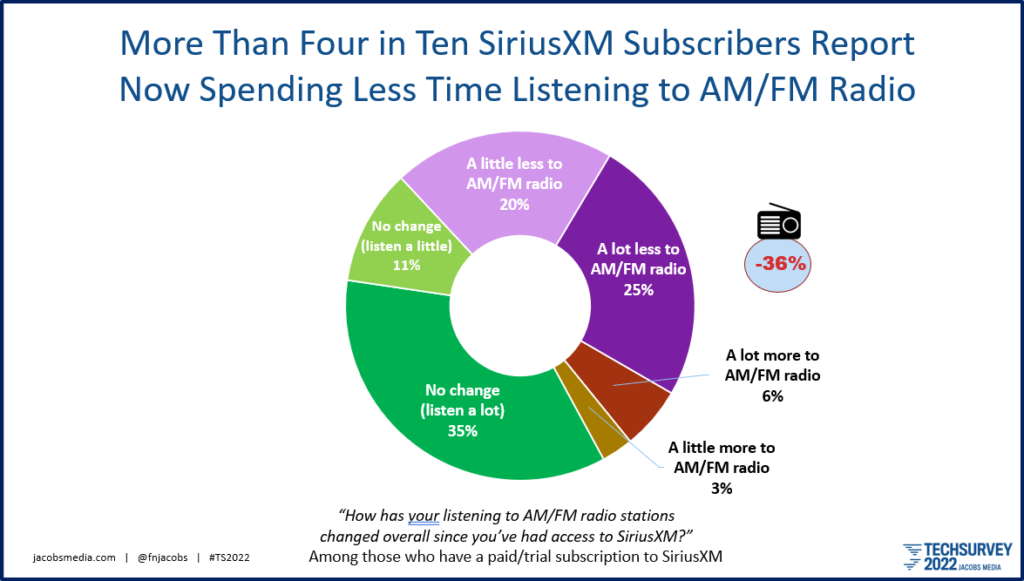
What keeps you up at night?
I know, right? The longer we work in radio, the longer the list gets.
Yesterday, I wheeled out 100+ data slides for our annual industry webinar for Techsurvey 2022. (The recording is available on our website here.)
As always, it was a good news/bad news study for a medium that has taken its lumps these past few years from unbridled digital competition as well as the ravages of global pandemic. An aging audience, fewer people in cars, and a dearth of new formats and content hasn’t helped.
Our data shows that radio listening – even among Techsurvey’s mostly core radio sample – is slowly eroding, along with those once-important images for new music discovery that used to bring teenagers to the medium in droves. Now, they’re on Spotify, TikTok, and YouTube.
Meantime as predicted by your friends here at Jacobs Media, the car has become a battleground as radio shares its prime end-cap position in dashboard with SiriusXM and smartphone apps. It’s enough to make you want to watch Art Vuolo videos of the good old days.
But don’t do that just yet. The good news is that this “radio thing” is still a very desirable medium that isn’t going away anytime soon. Repositioned, yes? But down for the count? Not even close.
How do I know this? Because the digital world has tried to copy, capture, and co-opt radio for years now, only to be met with failure on virtually every front. On this blog, we’ve discussed Apple’s forays into radio, first with Beats 1, now rebranded as Apple Music 1. No matter. It’s still as irrelevant as it was when it launched seven years ago next month. Despite the backing of one of the biggest tech + entertainment companies in the world, a talented international airstaff, endless research and data, and financial backing unlike anything broadcasters could even fathom, Apple’s so-called “radio station” cannot achieve lift.
forays into radio, first with Beats 1, now rebranded as Apple Music 1. No matter. It’s still as irrelevant as it was when it launched seven years ago next month. Despite the backing of one of the biggest tech + entertainment companies in the world, a talented international airstaff, endless research and data, and financial backing unlike anything broadcasters could even fathom, Apple’s so-called “radio station” cannot achieve lift.
Perhaps you’ve heard the old saw, “Dying is easy. Comedy is hard.”
It is commonly attributed to Edmund Gwenn. If that name doesn’t immediately jingle any bells, think of the charming, bearded old guy who played Kris Kringle a.k.a. Santa Claus in “Miracle on 34th Street.” It’s a saying that every comedian nods at when he/she hears, because it’s steeped in the truth. Comedy IS hard.
So is radio.
And yet seemingly, every tech company thinks they possess the magic elixir that will unlock the secrets of why Marconi’s medium continues to dominate today, competitive pressures and new technology aside.
Only radio people know what it’s like to walk into a live studio and do a 4-hour show Monday through Friday. Or cover a school board meetings where angry parents threaten journalists with angry vitriol and threats. Or do a remote from a client, making even a mattress store sound attractive. Or host a radiothon that raises tens and even hundreds of thousands of dollars for local hospitals. Or provide a lifeline to the locals when a weather disaster or crisis grips a community.
These are just a few of the everyday activities that set radio apart from everybody else. And yet, the big players are still trying to Xerox radio’s “secret sauce.”
Earlier this week, that sound you heard was the almighty Spotify throwing in the towel on its radio app – Spotify Stations.

Launched in the U.S. in 2019, the concept never took hold. According to TechCrunch, the apps and web player have been deep-sixed by Spotify. Don’t try to look for Spotify Stations in either Apple or Google’s vast app stores. You won’t find it.
Of course, they’re positioning this abject failure at ripping off radio as constructive chapter in their long-term audio strategy. And they hustled out this statement to their scrambling PR department:
“At Spotify, we routinely conduct a number of experiments to create better listening experiences for our users. Some of those tests end up paving the way for our broader user experience and others serve only as an important learning.
“Our Spotify Stations Beta was one of those tests. We will be sunsetting the current feature, but users will be able to easily transfer their favorite stations and enjoy a similar radio experience directly within the Spotify app.”
Translation: Don’t mind us. We were just experimenting with Stations. But its over, gone, done for. Go somewhere else for a radio experience.
Like RADIO.
Dying is easy. Radio is hard.
The moral of the story? My variation on Mr. Gwenn’s famous quote is mostly accurate – with one notable exception: SiriusXM.
While it is nowhere close to broadcast radio in that oft-mentioned reach metric, satellite radio has made other key inroads, especially in the car. Techsurvey 2022 data reinforces a fact of automotive life we’ve been tracking for years now. When consumers purchase a truly connected car with an infotainment system like Ford SYNC, Chrysler UConnect, or BMW’s iDrive, many discover – and embrace – SXM for the first time. Usually offered in a free trial, satellite radio’s music and spoken word channels are the closest thing to radio…since radio.
Many of its music channels have DJs, its spoken word options have hosts, and the stations can be preset in many new cars, right alongside AM/FM radio stations. Drivers and passengers don’t have to mess with their phones – all the stations are accessible, easy to find and lock in.
SiriusXM has also pioneered the subscription content concept. Long before most consumers were paying monthly fees for Netflix, Spotify, or Disney+, SXM was perfecting its monthly payment plan, training its operators and attendants to always retain subscribers – nearly at any cost. Just try to cancel satellite radio. I dare you.
But the other factor that has powered SXM’s ascent is the fact they’ve long relied on hiring radio veterans to guide their course. Yes, you know about Howard and Robin who’ve made a pretty nice impact on Sirius since Howard defected to satcaster more than 16 years ago (yes, it’s been that long). But there are dozen of other radio broadcast expats, enough to form a great sounding group of terrestrial stations.
In that context, SXM may have cracked the code on how to look, act, and even sound like radio. And here’s a chart I didn’t show during yesterday’s Techsurvey 2022 webinars. What happens to AM/FM radio listening when a consumer subscribes (or gets the free trial) on SiriusXM.

Defections to SXM represent a whopping 36-point difference when you consider those who now spend a little/a lot less time on broadcast radio, versus those who actually go the other way. As for the root cause of insomnia among broadcast radio professionals, this is a good place to start.
As for Spotify, however, radio can learn a great deal from these Swedish streaming wizards. The next time you’re stuck with the unpopular chore of shutting down a failed format to offer up yet another attempt on the same frequency, use the term “sunsetting” and then claim the debacle is all part of your ongoing beta process designed to create better listening experiences.
And then promote you’re playing 10,000 songs commercial-free.
Dying is easy. Radio is hard.
To obtain a recording of Jacobs Media’s Techsurvey 2022 webinar, click here.
- Media And Technology In 2025: Believe It Or Not! - April 18, 2025
- In Radio, You Just Never Know - April 17, 2025
- The Secret To Making A Great Podcast (And Great Radio) - April 16, 2025




When we launched XM, it was a United Nations of skill sets, but the programming was guided by RADIO principals albeit with the mission and mandate to dramatically rethink the current day (2001) sound.
What was surprising was the denial from the terrestrial community. The whole”it’ll never work…it’s not really radio…no one will pay….can’t compete with great the great FM band” sort of thing.
The Apple’s are brilliant at what they focus on but clueless at how to create and market amazing RADIO. They don’t “get” the great radio experience
But the key IMHO is take the innovation of a tech giant and marry it with the timeless basics of radio and execute with the reality of the current audio environment not masked by denial that there’s a problem.
I was amazed then as I am today that radio doesn’t capitalize on its natural advantages and at a time of unprecedented competition, isn’t on reinvention steroids
Your last two paragraphs. Thanks for elevating the conversation, Lee.
I see everyday that great minds convene here to discuss what should be done in radio. Lee has condensed it down to two paragraphs that even I can understand. Thanks all for the answers. Now if we could only implement them.
I think Lee is half right – its amazing that there’s little reinvention in radio ((can’t say none, because there is a lot of it in expense reduction), but I think radio is capitalizing on its natural advantages, or it would be in much worse shape than it is given the competition onslaught and radio’s product degradation.
As for your list of things that radio can do that other media can’t -most radio stations don’t do any of it – they don’t cover school board meetings, do remotes, radiothons or have the staff to respond immediately to a crisis.
Other odd thoughts – its amazing that no one but Panera has been able to replicate even the music of a radio station with algorithms. Apple and Spotify’s are borderline pathetic. If they understood why people listen to radio, they would hire pros to curate formats with too small a fan base to make a radio cluster’s cut, but still a huge national draw to their service – everything from radio’s graveyard (oldies/soft AC/smooth jazz) to things like Alternative gold, EDM, subsets of country, indie, ect.. While Sirius/XM takes some of that on, their versions are surprisingly bad – they do a good job with current based formats and a not so good one with gold based ones, so there’s an opening here.
Of course, radio could do a lot of that with its translators, but in the words of the late Herman Cain, “…aint gonna happen”. Many would probably like to know why.
Always honored to be mentioned in a Fred Jacobs blog! I “think” it was a sort of compliment, but after reading it a second time…not really sure. The videos that I have amassed over the last 40+ years DO show a time when radio was both fun AND entertaining. These days, with a few exceptions, it’s more like “the tried and true, rather than something new.” This morning while WATCHING the Bob & Tom Show (via the Internet on Roku) I laughed so hard I nearly gagged on my Special K. I wish we had more of that. Plus, you’re right Sirius XM features a lot of big names like Pat St. John, Shotgun Tom and the popular Phlash Phelps, making them sound more like regular radio everyday!
Always with love & mutual respect, Art. You know I an the industry greatly value what you do. Through your lens, there’s a radio industry that is vibrant and connected where talent is empowered to give their best & honest efforts. I know it still happens in 2022, and Tom Griswold & company bring it every day. I wish there more shows like this. Thanks for all you do and have done for radio.
Fred, Great article! And it was so nice to see the mention of Radio’s Best Friend Art Vuolo!
Love your daily posts!
Fred great blog as always! I have faith in the medium of radio to re-invent and re-fresh in the years to come.
It’s not going to happen from the corporate behemoths but it WILL come from the vast array of Independent broadcasters who value their investments and communities and will seek new pathways to success.
The Independent owned operators and owners are the future of radio – pure and simple.
Fred great blog as always! I have faith in the medium of radio to re-invent and re-fresh in the years to come.
It’s not going to happen from the corporate behemoths but it WILL come from the vast array of Independent broadcasters who value their investments and communities and will seek new pathways to success.
The Independent owned operators and owners are the future of radio – pure and simple.
MTV supposedly was going to kill the radio stars.
Look where’s MTV nowadays…
Apple supposedly was going to kill radio with its iPod.
A couple of days ago, Apple killed iPods.
Not that Radio is immortal, but it will take a long time and efforts to make it dissappear… unless Radio commits suicide by doing the wrong things that you have been writing about.
What makes satellite radio work, is the fact it is still radio. Not something dressed up to look like radio.
Radio works best when it’s local – no one else is covering little Johnny’s baseball game, or town council. Local talent, local music, local requests. And make sure your people (all of them) are out in the community.
And invest in your staff instead of cutting. They should be able to afford to go out and be seen at events instead of having to work second jobs.
Paul, we are on the very same page. Thanks for the comment.